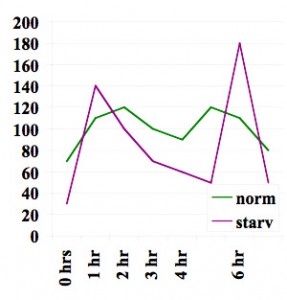Diabetes sugar diet
Diabetes Sugar Diet
When it comes to eating healthy for most people the main concern is excess weight, a diabetes sugar diet can be a matter of life and death. The body needs glucose since glucose is the fuel for cellular activity. In a normal person even the most sugary and fatty foods will not cause glucose levels to rise beyond acceptable limits because as glucose levels rise the brain signals the pancreas to release a hormone called insulin. Insulin allows glucose to cross over from the blood into the cells to be used as energy, and if there is still too much glucose after cellular energy requirements are met it is stored for future use. In a diabetic, either the pancreas no longer produces insulin or the cells are resistant to the effects of insulin, therefore the glucose level in the blood can rise to harmful levels.
Sugary foods such as candies, sodas, and other sweets can cause the glucose to quickly soar to much higher than acceptable limits and those on a diabetes sugar diet should generally stay away from such foods. Starches like those found in white colored foods like whitebread, rice, and potatoes can also make glucose climb rapidly because the starches are broken down into glucose by the body. A diabetes sugar diet is an important part of the overall health plan that every diabetic should follow to maintain healthy blood glucose levels and head off the worst health effects of diabetes. Diabetes and maintaining your sugar is always key and essential because with high blood sugar you will start having too many medical problems and situations can arise so why not maintain your blood glucose sugar properly as you should? You will be amazed at how much better you will feel with a properly maintained blood sugar level as well as how much healthier you will be.





